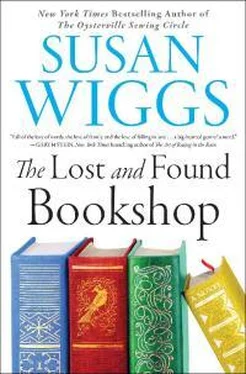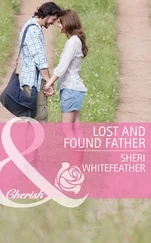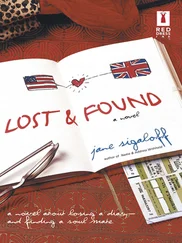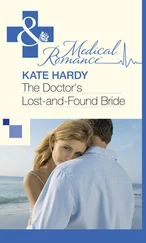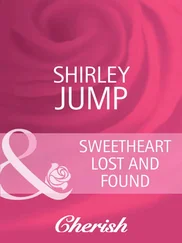“A book-signing party with Trevor Dashwood,” the girl said matter-of-factly. “He’s super famous and you’d sell a ton of books. He’s magic.”
“We could use a bit of magic around this place.” She glanced down at the water she’d tracked on the floor.
“Then that’s the plan. But we’re just getting started. There’s more to come.” Dorothy tapped the pencil on the list, her eyes bright with excitement. “Trevor Dashwood needs to have a book signing. People will come and they’ll all buy books and you’ll be back on track.”
A laugh of disbelief burst from Natalie. “Well, that would be a dream come true, but I’m sorry to say, I already looked into this, and his schedule is too full.”
“That’s what Mr. Harper said, too.”
Apparently Grandy had been paying attention.
“I did have a book signing last Saturday, but it didn’t turn out so well.” The Quill Ransom book was selling, though, slowly but surely. “I’ve been talking to publishers about other popular writers,” Natalie assured them both.
“Trevor Dashwood is the most popular,” Dorothy declared. “I bet he would come if he knew you needed help.” She leaned back in her chair and admired her list.
“Your child is very resourceful,” Grandy said to Peach. He beamed at Dorothy. “That’s a compliment, by the way.”
“Thanks,” said Dorothy.
“I like this child, Blythe,” Grandy added.
“I’m Natalie,” said Natalie.
“I know that.” He nodded at Dorothy. “She’s not like some of those whippersnappers who come into the shop.”
“What’s a whippersnapper?” asked Dorothy.
“An impertinent youngster.”
“I know what a youngster is, but what’s impertinent?”
“The sort of child who makes fun of me because I’m old and have hair growing out of my ears and a forgetful brain. And I’m happy to say that although you are young, you’re not impertinent. Therefore you’re not a whippersnapper.”
She grew quiet, studying him. “How old are you?”
“Seventy-nine.”
“Did you have fun, getting that old?”
“What a delightful question. No one has ever asked me this question before.” Grandy folded his hands on the table and looked off into the distance, his expression one of grave dignity. “I did have a great deal of fun. I loved this city. Used to run all around with my schoolmates. The Palace of Fine Arts was a wreck of a thing back then, fenced off and crumbling, but my buddies and I used to sneak in and race around scaring each other with a game like hide-and-seek. And we’d go to the lagoon and toss bread crusts to the ducks and have grass wars on the lawn there. When a kid fell into the lagoon, he came out covered in slime.”
“Did that ever happen to you?” asked Dorothy.
“It did. My mother made me clean up at the pump out back, and she didn’t even care that I was howling from the cold. We used to fly kites at Marina Green, and sometimes the navy would have submarine races and we could watch from the Heights. I had a friend named Jimmy Gallenkamp, and he was the king of the kite flyers.”
“I like flying kites,” Dorothy said.
“I know that. I saw you up at the park on my birthday.” Grandy’s expression sobered. “Have as much fun as you can, as often as you can. There were other times that I’ve endured unpleasantness and outright tragedy. There have been days when it was all I could do to take the next breath of air.”
“Breathing is always a good idea,” Dorothy stated.
“Indeed it is. When tragedy strikes, I must remember to breathe until I get to the fun part again.”
“And if you forget, I’ll remind you,” Dorothy said.
Natalie rarely considered herself terribly maternal. Kids were messy and unpredictable, a constant source of worry. They were a wild ride—flashes of utter joy interspersed with long stretches of tedium, often punctuated by disaster. But every once in a while, she came across a child who challenged her notions about kids. A child like Dorothy. She felt a tiny nudge of envy for the little girl’s parents. The world could use more Dorothys in it.
14
Tess had not prepared Natalie for Jude Lockhart, her associate from Sheffield Auction House, the San Francisco firm where Tess used to work. Tasked with tracing the provenance of the artifacts they’d found, he was coming in today to let Natalie know what he’d discovered.
He was more stylish than any man had a right to be—flinty-eyed, square-jawed, and dressed in couture slacks, a black cashmere sweater, and a jacket with elbow patches. He stepped into the shop with a swagger and greeted her with a glorious smile. “I’ve heard about this place,” he said, looking around. “Glad to have a chance to visit.”
“I’m Natalie,” she said, holding out her hand.
He grasped it in both of his, his clear gray eyes taking her in. “Sorry, I shouldn’t stare,” he said. “You’re really pretty. And I’m being totally inappropriate.”
Somewhere at the back of the shop where Peach was working, there was a raucous thud and the whir of a power tool.
Nonplussed, Natalie said, “Thanks for coming. I’m excited to hear what you found out about all our artifacts.” She introduced him to her grandfather and then Peach when he came up front. As they shook hands, Peach said, “Hey, Jude,” then chuckled. “I bet you get that a lot.”
What a dork , thought Natalie. Why did she find that charming?
“Not really,” said Jude. He scanned the barrister cases and the display under the glass counter. “Rare books?”
“Indeed,” said her grandfather. He was shuffling papers, something he seemed to do to calm himself. “That was our very first stock in trade. Blythe and I started the shop with some old books we found in the basement. We’ve had some exciting finds—a book by each of the four original Bohemians—Mark Twain, Bret Harte, Charles Warren Stoddard, and that lady poet, Ina …” His voice trailed off. “I don’t recall her full name.”
“Coolbrith,” muttered Peach, heading to his truck with some old lumber.
“That’s correct,” Grandy said. “Thank you, Mr. Gallagher.”
“You just came up with that,” Natalie said.
He shrugged, then used his hip to open the door. “Her name’s on a plaque at the library over in Oakland.”
She turned to Jude. “My mother specialized in works by California writers. If you know any collectors, send them our way.”
“Will do. Let’s take a look at your stuff.” He followed her to the back office and set down the collection of found objects and artifacts. There were old photos, letters, and ephemera. An opium pipe. There was even a bag of gold marked For my Annabelle .
“Fool’s gold,” Jude told her.
“Bummer. It would be nice if it was real gold,” Natalie said.
“Sadly, it’s not. I wonder if whoever stashed it away knew.”
“Poor Annabelle. Maybe it’s a good thing she never found out.”
Jude moved quickly through the photos and letters, small whittled objects like mouth harps, buttons, and whistles. There were several stock certificates for things that no longer existed. One of the letters concerned the Levi Strauss company, but according to Jude, it had no worth other than human interest.
“A lot of these things can be catalogued by the local historical society. The medals are a mixed bag. This group here”—he indicated a collection of objects—“is probably only of limited interest and little to no value. They could be donated to the historical society or put on display here in the shop. They could be sold to collectors, or some might be traced to their ancestors. Anyway, most of these things are curiosities. With one very great exception.”
Читать дальше
